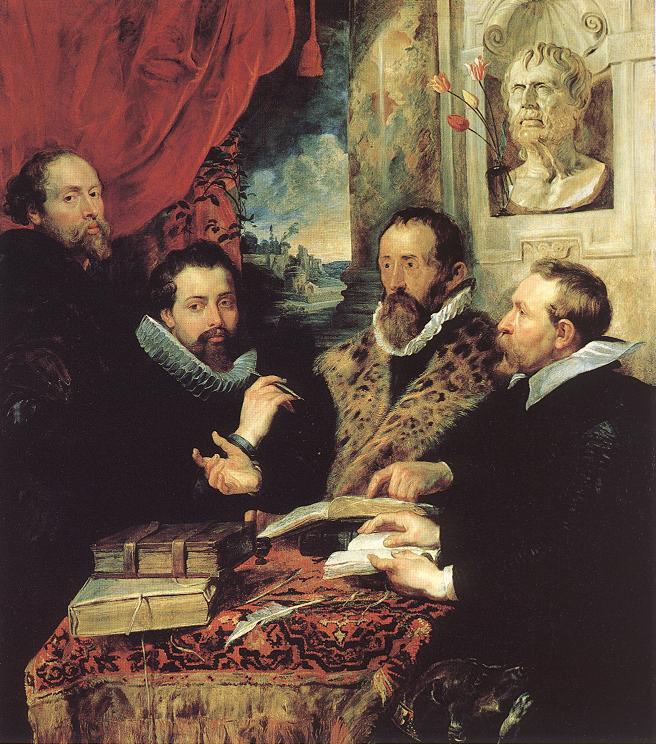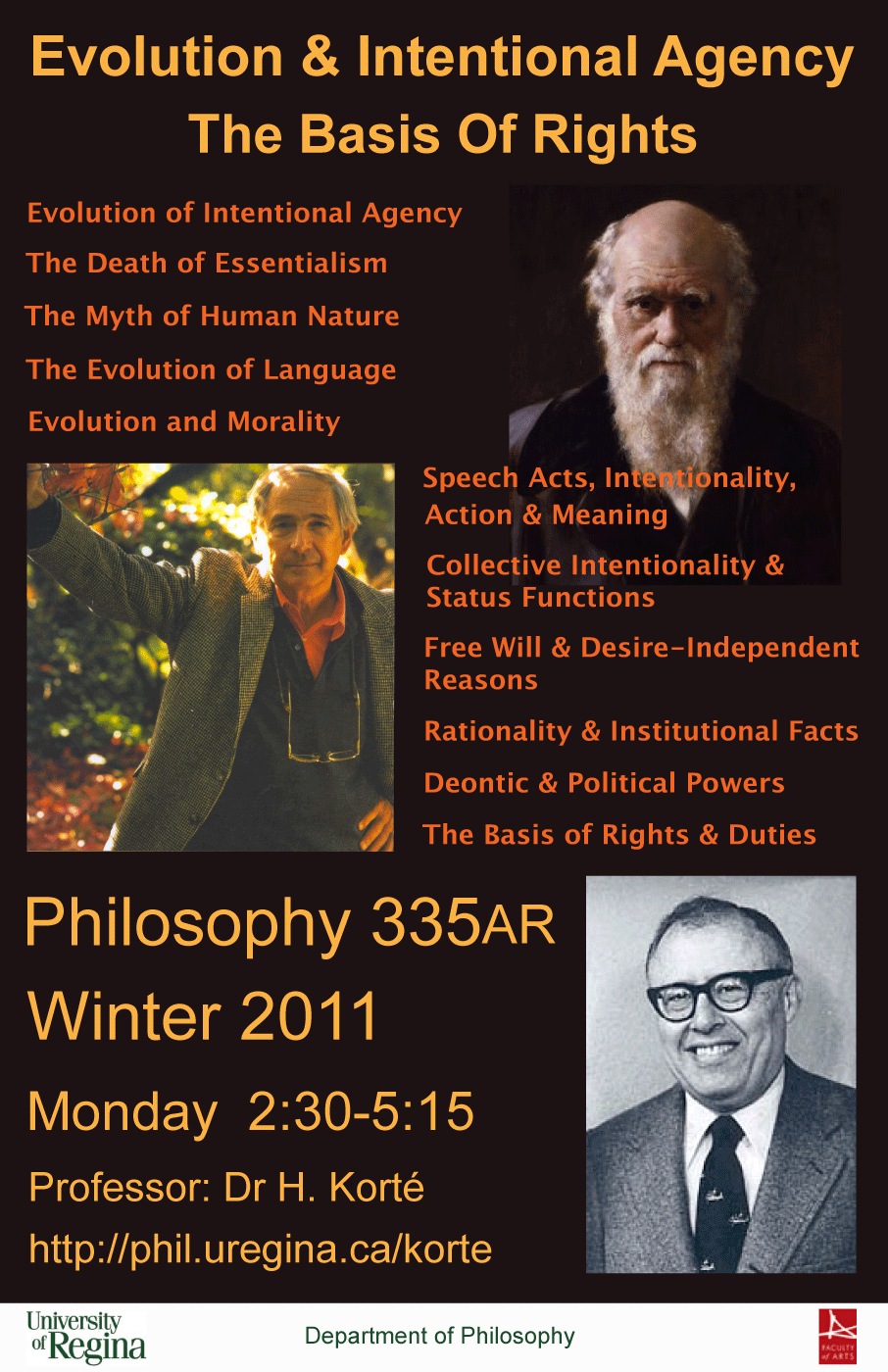


Evolution, Biological Intentional Agency
And
The Grounds Of Ethical Judgments

Four Philosophers by Peter Paul Rubens
Philosophy 335AR/435AR/880BC
Professor: Dr. H. Korté
Time/Location:
Winter, 2011
M: 2:30 - 5:15
Ad Hum Bldg., Room 412
About The Seminar:
The discussions and readings of the seminar will, for the most part, be devoted to (1) some aspects of Evolutionary Biology, (2) John Searle's work on speech acts, intentionality, and the philosophy of society, and (3) Alan Gewirth's attempt to ground human rights on rational intentional agency.
The main objective of the seminar is to construct, within the framework of biological naturalism, the grounds of ethical judgements, by extending and synthesizing some insights of Searle and Gewirth.
We will begin by discussing Searle. Searle has written extensively, over the past five decades, on philosophy of language and speech acts, philosophy of mind, intentionality and action, rationality and freedom, the ontology of society, causality and science. Searle is not a moral philosopher. However, the areas in which he made major contributions, such as intentionality, action theory, rationality in decision making and social ontology, provide the necessary basis for any effective ethical theorizing: All moral precepts provide “ethical reasons for action” because they tell us how we ought to act. Consequently, it is “action”, which constitutes the necessary subject matter of all morality. The phrase “ethical reason for action” is not intelligible, however, unless we have a clear understanding of what an action, and a reason for action, are. To gain such an understanding requires a logical analysis of action, intentionality and of rationality in decision making. Such an analysis is therefore necessarily propaedeutic to any ethical theorizing. Moreover, such an analysis ought to be informed by our best current scientific theories and therefore ought to cohere with biological naturalism.
We will also look at some of the writings by Alan Gewirth. Gewirth developed a special method for ethical theorizing, called the Dialectically Necessary Method. He uses this method to derive certain agent-relative truths that provide the justificatory ground for a fundamental moral principle called the Principle of Generic Consistency. Gewirth shows that a first-person analysis of intentional agency reveals that rational intentional agency necessarily involves certain evaluative judgements that no rational normal intentional agent could deny without falling into a logical inconsistency. To deny certain agent-relative evaluative judgments is only possible on pain of self-contradiction. And since the Principle of Generic Consistency is logically derivable from agent relative truths, to deny that principle is likewise only possible on pain of self-contradiction.
Some of the topics to be discussed are displayed on the poster.
Textbooks:
- Making The Social World: The Structure of Human Civilization by John R. Searle, Oxford, University Press, 2010.
- Rationality in Action by John R. Searle, MIT Press, 2001.
Material from the works of Gewirth will be made available.

